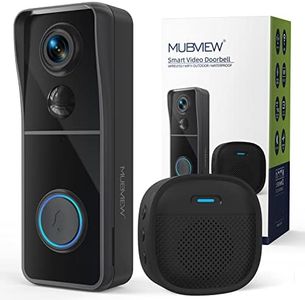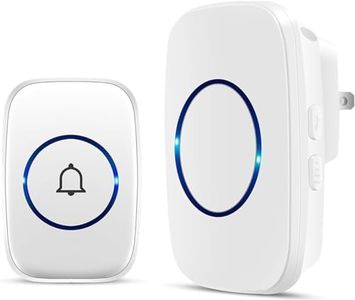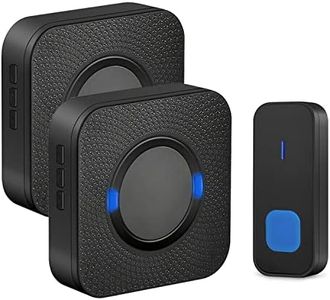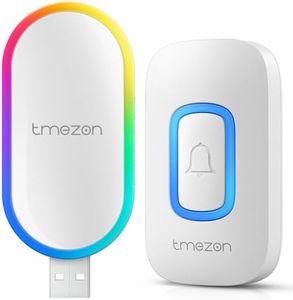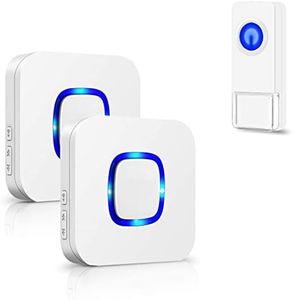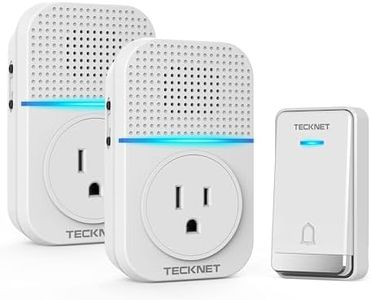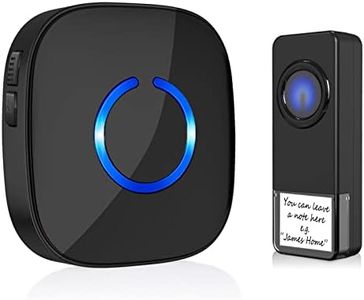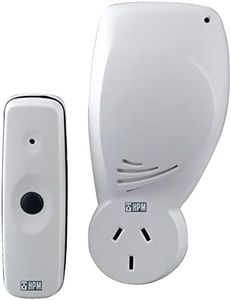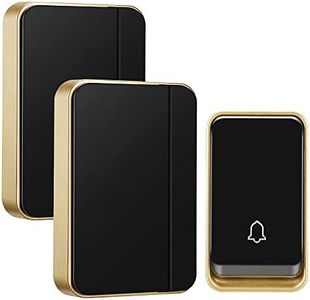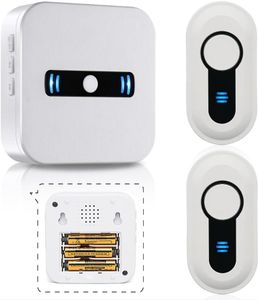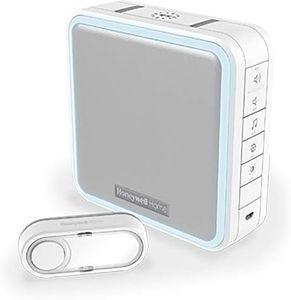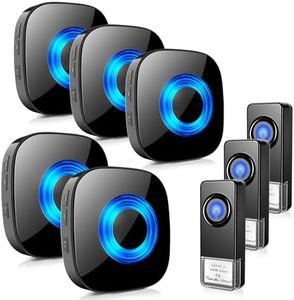We Use CookiesWe use cookies to enhance the security, performance,
functionality and for analytical and promotional activities. By continuing to browse this site you
are agreeing to our privacy policy
10 Best Wireless Door Chimes
From leading brands and best sellers available on the web.By clicking on a link to a third party's website, log data is shared with that third party.
Buying Guide for the Best Wireless Door Chimes
When choosing a wireless door chime, it's important to focus on how the chime will fit into your daily life and the layout of your home. Start by considering where you'll need to hear the chime, how easy you want installation to be, and any extra features that could simplify your routine. Keep in mind that the right door chime should be easy to use, reliable, and suit your specific needs for volume and sound options. Try to prioritize the specs that affect your experience the most—such as signal range and sound variety—so you end up with a product that does exactly what you want without any hassle.Wireless RangeWireless range tells you how far you can place the doorbell button from the chime receiver while still having it work reliably. This spec is crucial if you have a large home, a garage, or multiple floors, because too short a range means you won't hear the chime in some rooms. Range can be divided into short (about 100-200 feet), medium (200-500 feet), and long (500 feet or more). If your house is small or you only need the chime nearby, a short range will likely be fine. For larger homes, thick walls, or detached buildings, it's safer to choose a medium or long range to avoid missed visitors.
Number of Ringtones and Volume SettingsThis feature describes how many different melodies or tones the door chime offers, and how easy it is to adjust the volume. More ringtones and volume levels give you flexibility to personalize how your doorbell sounds and make sure it's neither too loud nor too quiet. Fewer choices keep things simple but may not suit everyone’s taste or hearing needs. If you like variety, live in a noisy place, or have specific hearing needs, look for models offering multiple ringtones and volume controls. If you prefer simplicity, a basic model with just a few options will work well.
Power SourceWireless door chimes can be powered either by batteries, by plugging into an electrical outlet, or sometimes both. Battery-powered units are extremely flexible for placement and good for situations where outlets are not nearby. Plug-in units mean you never have to worry about replacing batteries, but you're limited to putting them near a socket. Think about where you want to place your chime and whether you mind changing batteries every once in a while—your choice should be guided by your home's layout and your willingness to handle occasional maintenance.
Ease of InstallationEase of installation refers to how simple it is to set up and start using the wireless door chime. Some models are truly plug-and-play, requiring just a few minutes and possibly no tools, while others might need you to mount hardware or deal with more settings. If you prefer a no-fuss, quick setup, choose a product advertised as easy to install, which usually just sticks on or plugs in. If you're comfortable with a little DIY, a wider range of models opens up to you.
Weather ResistanceWeather resistance is all about how well the outdoor parts of the chime—usually the button—can handle exposure to rain, snow, and sun. This is especially important if your front door isn’t sheltered or you live in a harsh climate. Look for units rated as weather-resistant or waterproof for outdoor use. If your entryway is very protected, this may not be as crucial, but for most users, a weather-resistant model ensures the chime keeps working through the seasons.
ExpandabilityExpandability means the ability to add extra buttons or receivers to your setup. This is key if you have more than one entrance or want chimes in several rooms. Some systems allow you to pair multiple buttons to different doors or link multiple chime units around your home. If you have a complex layout or might expand later, choose a model that supports additional units. If you only need one chime for one door, this feature is less important.
